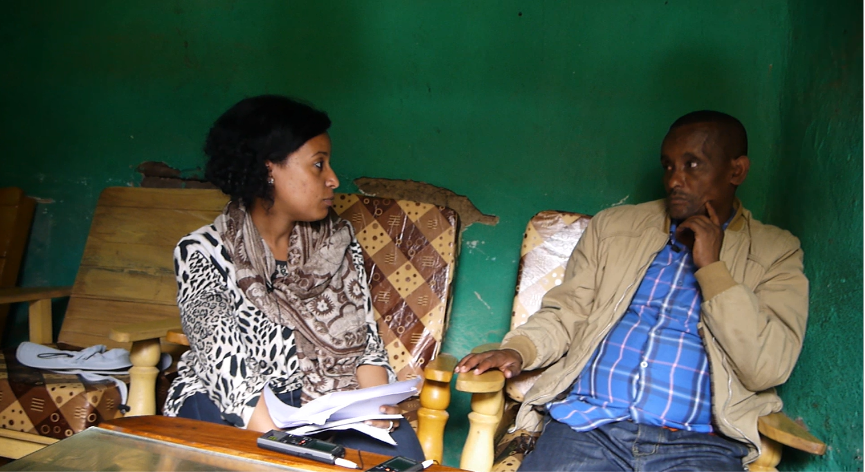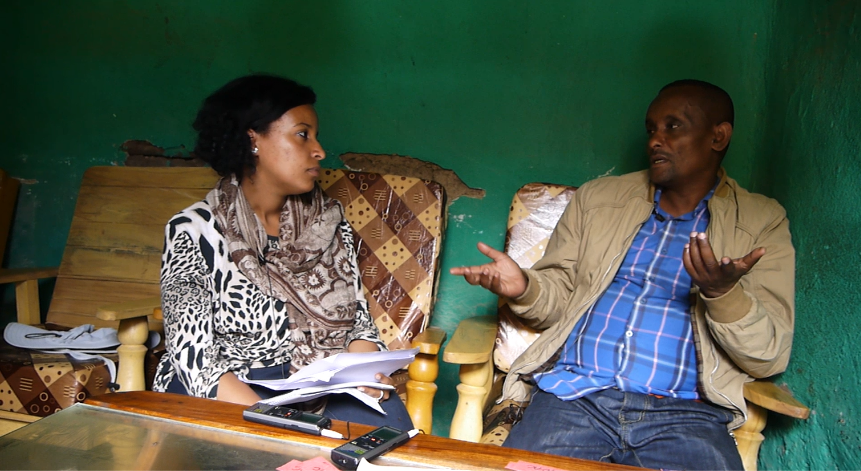
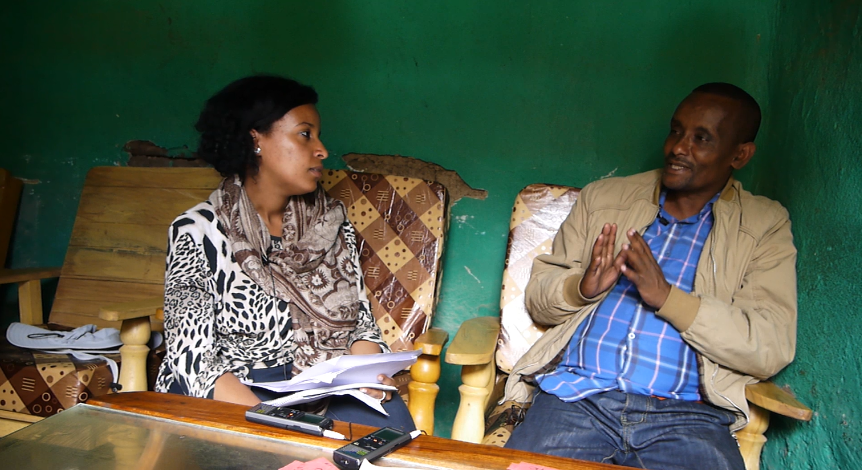
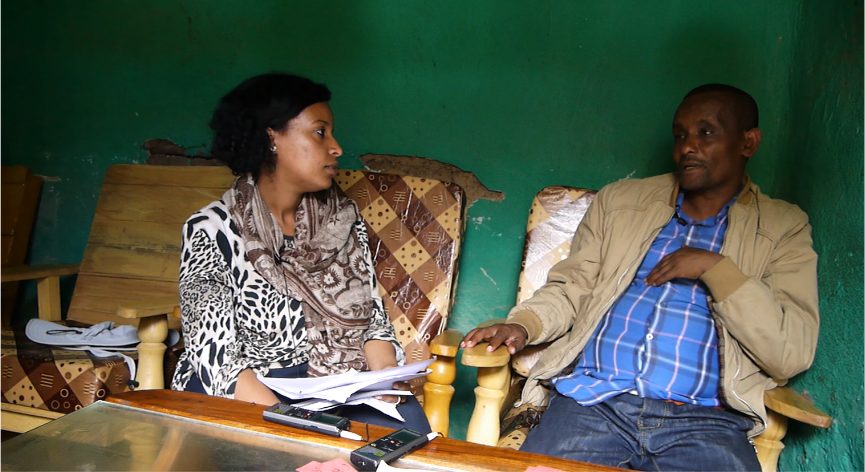
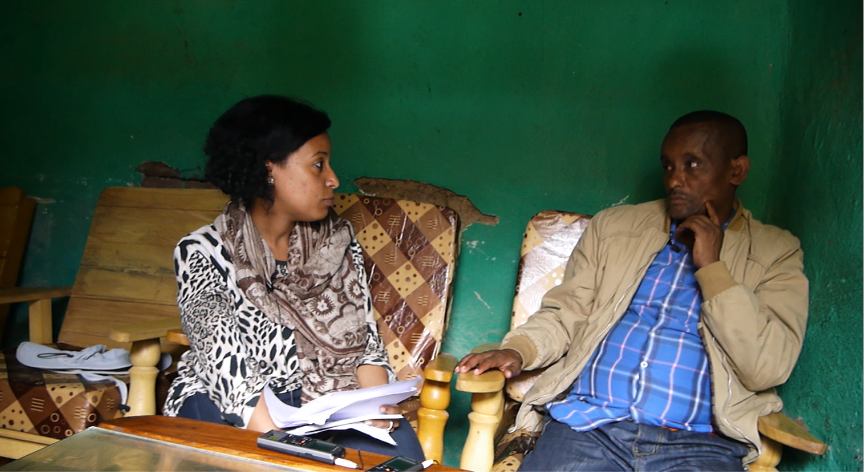
L-IFT was founded in 2015 and actually the reason we found it was because the Mastercard Foundation wanted us to conduct a diary study with young people, called Livelihoods Diaries. At the end of this diaries studies, I think it was in May 2016, I wrote a blog Learning from Answering Questions, which is still published on the website of the Mastercard Foundation. That blog explains that the essence of the whole financial diaries study is its repeated interviews, that you keep asking people questions, and that this repeat feature brings about change in people’s lives. Because of the questions, people start to think about their situation and they start to become more aware of some aspects of their lives because the questions force participants to explore areas of their own lives they may not have thought much about before. It gives people a better overview of their situation, and it seems, at least that’s what respondents said, that this leads to having a better grip on their situation.
Now in 2021, we started with financial diaries for small firms. This project is led by New York University and is taking place in seven countries. Recently, I visited several small firms in Ethiopia, which is the country where the study is ongoing longest. One of the small firm owners told me this story. He was not a particularly highly educated person nor even a very successful businessperson. I asked him, “So how have you experienced the study? What was it like for you?” He answered “When it all started, and your field researcher started asking all these questions, I just thought, ‘Oh, you know, why do they want to know that and take so much time for nonsense?’ I did participate in all the surveys but I was very critical of them. But then, later I realized that all these questions started to make me think about things, and almost always one or two weeks after the questions came, I started to realize that all of them were touching on important aspects of my business and that they helped me to think about these things. And now, we are almost at the end of this study, I realize it’s like I’ve participated in some course.” He didn’t use this word, but from what he said, it was like he got to take an MBA just by participating in the study. He said, “Ultimately, all the questions you asked were very relevant. And if I now don’t know what the relevance is of some of these questions, it’s just that I just don’t know that yet. But I will find out soon enough. I am really happy about the study.”
This discussion makes me hopeful that we are not just taking information from them, but that we’re doing something that will ultimately help different businesses and different people.
Basically, the teacher and all students ask questions, which helps them uncover beliefs, and together they can test these and come to better hypotheses.
On the same trip, I had a few days in Kenya with the small firm diaries project there. And then, a senior expert I know there said to me, “Actually, teaching in the form of asking questions is the Socratic method.” I looked up “Socratic method”, and indeed this approach has some commonalities with what we do. Basically, the teacher and all students ask questions, which helps them uncover beliefs, and together they can test these and come to better hypotheses.
As L-IFT, we can do more with this approach. In business development, there’s much training going on, which is trying to be participatory, but most is still sending information, partly because of the limited time available. When you give a Business Development training, you’re descending a lot of thoughts and a lot of methods or ways of looking at things on business owners. And the participants may find it very interesting, but only the moment that you start to answer questions yourself will you know whether you have internalized the material. It is often mentioned that only a solution you have discovered yourself you will truly embrace. If business owners are asked, what is the situation, they start to really go deep into the issues, and that way the business owner internalizes the relevance of the question, as well as their answers, which effectively is their assessment of the issues.
Another issue is around knowing something latently and actively. By formulating the answer yourself, you will remember it, and you might start acting on it more than if somebody offers you a solution from outside. You know, if you found your own solution, that’s the best way of making you change things.
These quizzes, in a very simple format, will bring about lots of thinking and discussion and hopefully achieve increased awareness amongst a group of people.
At L-IFT we want to develop financial literacy training and other training purely through quizzes. On purpose, we use the word quiz rather than a survey, questionnaire, or interview. The people who participate in the quiz get to hear what the right answer is, directly after the quiz. They can win prizes if they have the right answers. We think that this method will encourage people to think deeper about the questions to find the best answer, and we know that people will discuss the questions with each other, and maybe, as a family or as a group of friends, they will come up with an answer. Because there is a small prize to win, people get more enthusiastic and therefore put more energy and effort into discovering and remembering the correct answer. In that way, these quizzes, in a very simple format, will bring about lots of thinking and discussion and hopefully achieve increased awareness amongst a group of people. So, L-IFT’s suggestion: keep asking questions, that is the way forward. Thank you.

